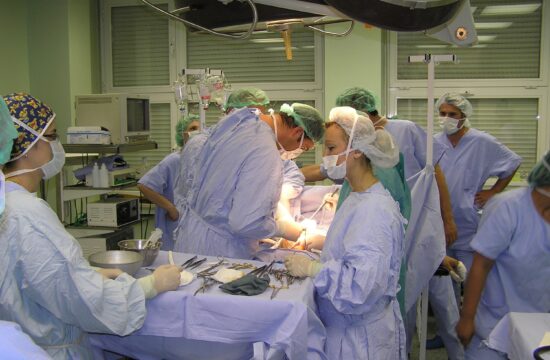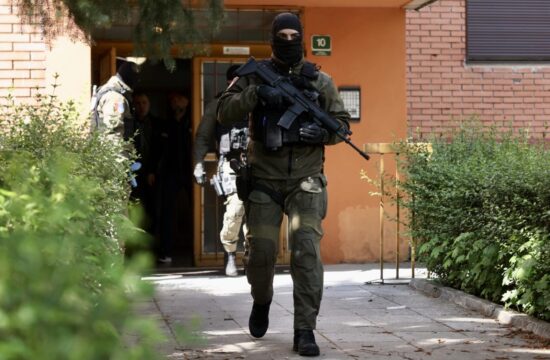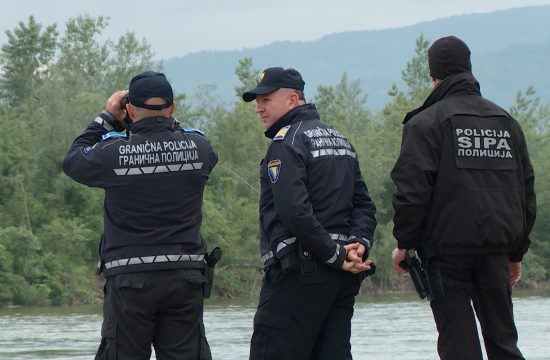
The bickering over Bosnia’s Annual National Programme (ANP), a document the country is to send to NATO, should stop so that a new government is finally formed after nearly a year, Russia’s Ambassador Petr Ivantsov said after meeting with Bosnian Serb leader Milorad Dodik on Monday.
Bosnia has not formed a government – officially called the Council of Ministers – since the October 2018 election because the Bosniak and Croat members of the tripartite Presidency refuse to vote for the new prime minister, who is supposed to come from the ruling Bosnian Serb party, because he opposes the country’s path toward NATO membership and announced he would not allow the next step in this direction to be made.
The next step would be sending the Annual National Programme (ANP) to the alliance.
Although they agreed to Bosnia’s NATO membership before and signed off on the country fulfilling its obligations, including sending the ANP to Brussels, Bosnian Serb political leaders now vehemently oppose any activities that may bring the country closer to membership.
The leaders of the three parties which won the election signed an Agreement containing principles for forming the government on August 5 in an effort to overcome the stalemate, but the main issue, the ANP, is vaguely defined in the document.
The central issue remains unresolved while the 30-day deadline set in the agreement is approaching.
“That needs to be put aside when speaking about forming the government, and other things, such as socioeconomic issues and the judiciary, should be talked about,” Ivantsov said.
“Economic cooperation with the RS is an important topic for us, the continuation of the work of Zarubezhneft and the Sberbank with others in Republika Srpska,” the Russian Ambassador said.
“We spoke about the implementation of the election results. That work needs to be completed in accordance with the Dayton Peace Agreement and the equality of all three peoples, respect to both entities and the sovereignty of Bosnia and Herzegovina,” Ivantsov said.
He said that the situation regarding the ANP was “complex” and that the basis for finding a solution is the Agreement the three leaders have signed.
Dodik had earlier announced that if the government is not formed by the deadline stated in the agreement, which is September 5, his party will ask the National Assembly of Republika Srpska to declare void all decisions not strictly stated in the 1995 Dayton Peace Agreement, which ended Bosnia’s war and contains the Constitution.
This would mean that the RS would declare bodies that were established after the peace agreement, such as the joint state-level Armed Forces, the state-level tax office, the state court and police agency and others, invalid.
Bosnia’s Foreign Affairs Minister, who is currently serving in a technical mandate, said on Sunday that this would represent a call for another war.
“I’m sure that the people of Republika Srpska do not want to wage war, especially not because the SNSD is in power and they will not risk the future of the RS and their children for the interests of the SNSD and their coalition partners,” said Crnadak, who is a member of the Party of Democratic Process (PDP), one of the Serb opposition parties in the country.
He said that the people will never support such an “adventure” which could lead to mobilisation and new wars.
But Dodik said on Monday that it was just a demand to discuss open issues with the Federation (FBiH, the other semi-autonomous entity within the country) and the other two major ethnic groups (Bosniaks and Croats).
“It is no adventure or call for a war,” he said.
“Ten months after the election we have obstruction because of the plan for NATO. The electoral will of Serbs has been compromised,” he said, adding that Bosnia currently has “quasi-institutions.”
“Serbs are not adequately represented, and we wanted and still want to enter the institutions based on the electoral will of Serbs,” he said.
The parliament of Republika Srpska (RS National Assembly) should “reconsider its state and position,” he said.
“We reject any narrative on any kind of malicious Russian influence,” Dodik stressed.
He argued that military neutrality is the solution and that the country should not be in any military alliances “in the east or the west,” referring to a Resolution on Military Neutrality the RS adopted in 2017, in line with neighbouring Serbia.




